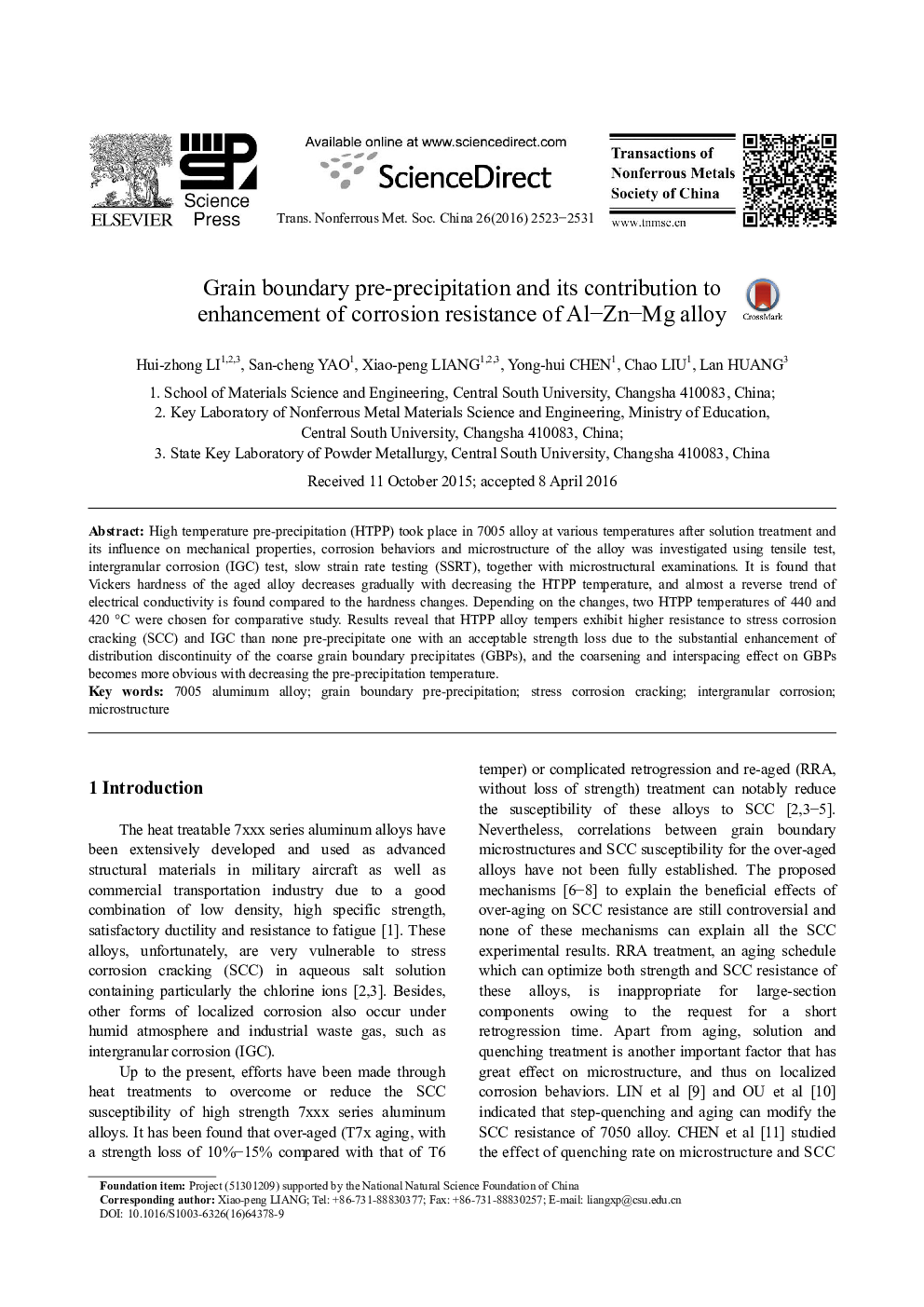| Article ID | Journal | Published Year | Pages | File Type |
|---|---|---|---|---|
| 8012156 | Transactions of Nonferrous Metals Society of China | 2016 | 9 Pages |
Abstract
High temperature pre-precipitation (HTPP) took place in 7005 alloy at various temperatures after solution treatment and its influence on mechanical properties, corrosion behaviors and microstructure of the alloy was investigated using tensile test, intergranular corrosion (IGC) test, slow strain rate testing (SSRT), together with microstructural examinations. It is found that Vickers hardness of the aged alloy decreases gradually with decreasing the HTPP temperature, and almost a reverse trend of electrical conductivity is found compared to the hardness changes. Depending on the changes, two HTPP temperatures of 440 and 420 °C were chosen for comparative study. Results reveal that HTPP alloy tempers exhibit higher resistance to stress corrosion cracking (SCC) and IGC than none pre-precipitate one with an acceptable strength loss due to the substantial enhancement of distribution discontinuity of the coarse grain boundary precipitates (GBPs), and the coarsening and interspacing effect on GBPs becomes more obvious with decreasing the pre-precipitation temperature.
Related Topics
Physical Sciences and Engineering
Materials Science
Metals and Alloys
Authors
Hui-zhong LI, San-cheng YAO, Xiao-peng LIANG, Yong-hui CHEN, Chao LIU, Lan HUANG,
